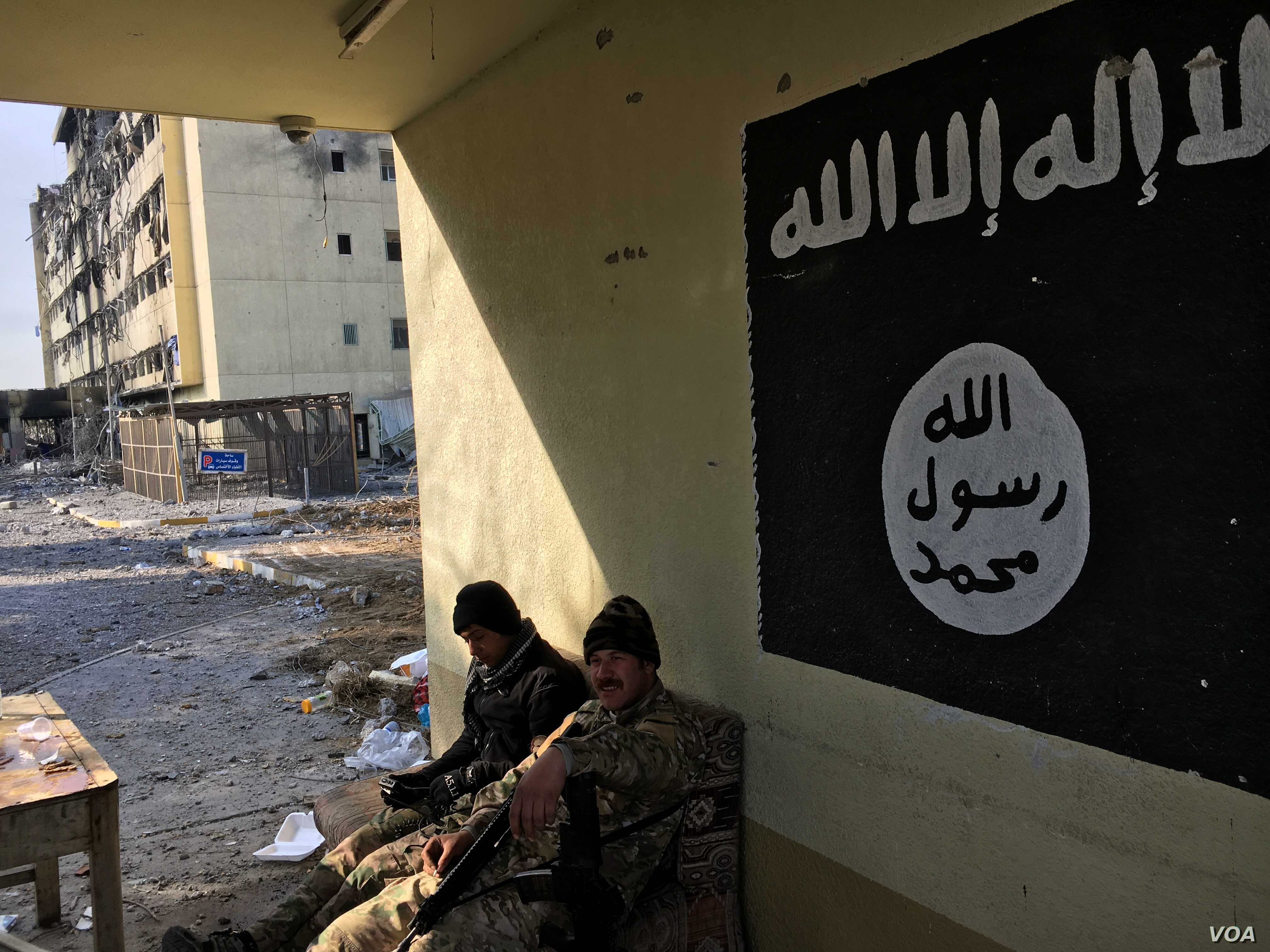Impunity for Repatriated Islamic State Members
In several countries, repatriated Islamic State members have not been held accountable. Their treatment has sparked controversy and raises security concerns.

Published by The Lawfare Institute
in Cooperation With

In July, on a closed Russian language Telegram chat for female Islamic State members detained in camps in Syria, the following advertisement was posted: “Sisters from Uzbekistan, please get in touch with me about assisting with repatriation. I, alhamdullilan, can assure you that there are no problems for [people of] our religion here [in Uzbekistan].”
The woman behind the post is a member of the Islamic State who recently returned to Uzbekistan from Syria. She says she is now helping her sisters get repatriated to Uzbekistan and trying hard to persuade Islamic State members in the camp to come home.
One of her main arguments for returning to Uzbekistan is that under no circumstances is anyone arrested when they return. “I went through several [Islamic State] military trainings, was myself fighting and was wearing a suicide vest,” she said. “I told all that to security services, and I had no problems—I am home free.”
When she was asked by one chat member about owning Yazidi slaves and if it would lead to arrest, she replied, “No, it is not a problem. [There is a] 99% guarantee that you will not be arrested, even if you owned a slave. The president of Uzbekistan is not taking orders from anyone, and he clearly said that no one would go to prison.”
It is not clear on what conditions the woman may be assisting the Uzbekistan government, but she is not lying. In the past year, 118 female Islamic State members returned to Uzbekistan from both Syria and Afghanistan. Some of them were officially flown back to the country and some escaped from the camp—either by themselves or with help of the Islamic State—but none of them is in prison.
And the behavior of female Islamic State members from Uzbekistan is no different from that of women of other nationalities in the Islamic State, some of whom owned slaves, took an active part in fighting, worked for Amni (the Islamic State’s internal security) or Hisba (an organization that enforces strict religious rules on local civilians), or were involved in propaganda and fundraising. All of them were members of a terrorist organization, but none of them has been held responsible for that. In fact, quite the opposite. It is important to note that the majority of those repatriated are women Islamic State members. Many men who joined the Islamic State are still detained in Syria or are in hiding.
In an interview, Uzbek President Shavkat Mirziyoyev explained the government’s policy of amnesty: “Anyone could make a mistake, and we need to give them a second chance, and everyone should take part in helping them,” practically asking all government institutions to support those returned Islamic State members. Female Islamic State members are provided with benefits when they return that are often out of reach to average poor citizens of Uzbekistan. For example, the women were provided with free medical care (including expensive surgeries for wounds sustained while fighting coalition forces) and monthly humanitarian aid. Some were given free housing, job training and even equipment to start their own businesses. And since Uzbekistan is a developing country, it has relied in part on funding from the West (especially from the European Union) to provide these benefits.
Such a situation creates obvious security problems. For example, feeling total immunity, many returned women are now actively collecting money to smuggle other Islamic State members from camps and are spreading Islamic State propaganda through various Telegram channels. This is particularly alarming given recent Taliban attacks on Uzbekistan’s border from Afghanistan.
Such preferential treatment has sparked controversy. It comes at a time when hundreds of thousands of Islamic State victims, though lucky to survive the Islamic State, are still living in camps of internally displaced people and in destroyed houses with no international assistance. And due to the high number of returning women, this preferential treatment of Islamic State members is already leading to backlash in their home societies, as I learned through a series of interviews I conducted.
First, many in Uzbekistan told me that they do not agree with the government spending millions of dollars on flying members of a terrorist organization back from Syria while labor migrants, living in tents on the border with Uzbekistan for months, are trying to return home with no assistance from the government. Islamic State members are not even asked to pay the government back.
Second, most government officials did not agree with the universal and immediate pardon at first and said that they could not issue those women new documents (that they either lost or intentionally destroyed while with the Islamic State) without a court decision. So all women returning from Syria had to go through a trial and be sentenced and they could then apply for (and be granted) presidential amnesty.
Third, many people do not agree with female members of the Islamic State receiving amnesty. For example, when an 18-year-old man returned from Russia where he was a labor migrant, he was arrested because he had Islamic State propaganda videos on his cell phone. His mother angrily commented, “My son should have gone to Syria to fight and not to Russia to work like normal people. In that case, he not only would have been free, but would probably even have gotten a free apartment from our government.” And considering Uzbekistan’s record of prosecuting democratic opposition and attacking the free press, such a lenient approach to members of a terrorist organization alarms many activists and members of the opposition.
Finally, many people believe these women should not get extra benefits from the government. According to one former member of the Uzbekistan government that I interviewed, “I retired after working 50 years for the Uzbek government, and I could not get an appointment in the country’s military hospital where those women are being treated without waiting months in line and for free. Are they some kind of Heroes of Uzbekistan [Purple Heart recipients] to deserve such privileges?”
Although the problem of how governments deal with women who have returned after joining the Islamic State is particularly visible in Uzbekistan due to its large number of returned Islamic State members, other countries, including Western ones, have also chosen to leave Islamic State members unpunished. For example, Finland did not prosecute a single female member it repatriated despite many of the women being publicly involved in propaganda and other illegal activities. One of these women even wrote an article for Dabiq, an Islamic State magazine, saying, “As for those people who cannot perform hijrah [come to Syria], I advise you to attack the Crusaders [Christians] and their allies wherever you are, as that is something that you are able to do.”
In addition to being free, these repatriated Islamic State members are also relying on government-provided welfare, and some were even receiving it while in Syria or Iraq. “Someone from [the Islamic State] would regularly go to Turkey and withdraw money from several bank cards,” explained a relative of one female Islamic State member from Finland. “That is how Western welfare money ended up in [the Islamic State].”
The United Kingdom went even further and charged a higher proportion of those who joined the Kurdish YPG militia, which received Western military support in their fight against the Islamic State in Syria, with terrorism offenses than returned Islamic State foreign fighters. It also provided returned Islamic State members with free housing and expensive medical treatment for wounds they sustained while being part of Islamic State in the battlefield in Syria. And now the U.K. is going to great lengths to hide the actual numbers and any information about returned Islamic State members.
One could assume that such freedom from prosecution might be granted to Islamic State members for providing some important information—for example, about the Yazidi genocide—that would help prosecute other group members. That is particularly important since 2,800 Yazidis are still missing. But, unfortunately again, the opposite is true.
While countries like Uzbekistan, Kazakhstan and Kosovo at least extensively interrogated returning female Islamic State members, Bosnia exempted them from testifying in trials against accused foreign fighters; they were proclaimed incapable to serve as witnesses due to the effects of trauma from the conflict zone. Not only does this policy prevent the investigation of Islamic State crimes, but it is also disrespectful to its victims who are testifying in courts despite their even bigger trauma both in the conflict zone and in court where they face perpetrators. Finally, in some countries, such as Finland, it is merely voluntary for returned Islamic State members to talk to security services upon arrival.
From 2014 to 2018, the Islamic State committed terrible crimes including Yazidi enslavement, beheadings, mass executions, terrorist attacks all over the world and burning people alive. All of these crimes were broadcast by all media channels in all languages. At that time, governments were competing with each other to publicly condemn the Islamic State, making claims of how they would bring the perpetrators to justice. But now, it is apparent that for the majority of governments around the world, those claims were nothing more than lip service. Only a small number of countries have followed through on their promises.
A hypothetical female Islamic State member who owned a Yazidi slave, went through military training camps, and fought for the group would get 10 to 15 years in prison in the United States. By contrast, in Germany she would get only a four-year sentence (which is less than for drug-trade offenses), in Kosovo she would get only a suspended sentence, in Uzbekistan she would receive amnesty and be entitled to various benefits, in the U.K. she would not be prosecuted and would get government-provided housing, and in Finland she could receive significantly more welfare and would not even be bothered by security services.





